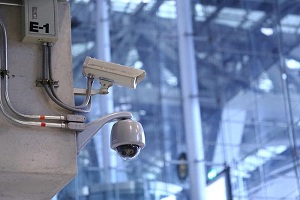France may be on the way to deploy face recognition and AI surveillance technologies to monitor people in public spaces. The news comes after a series of terror attacks in Nice recently, which saw three people losing their lives. Commenting on an article for French national newspaper Le Monde, Mayor of Nice Christian Estrosi proclaimed “no rights for enemies of the law,” as he called for a series of measures to protect the community from extremism.
“Uncompromising secularism [is needed], as well as legislation and measures including facial recognition, deprivation of nationality, accelerated expulsions and reduced asylum rights,” Estrosi said. The call was also echoed by France’s transport minister Jean-Baptiste Djebbari, who said artificial intelligence measures should be deployed to fight terrorism on public transport, as long as individuals’ privacy rights are respected.
However, France has so far sustained a policy of no surveillance technology in public spaces.
Last year, The Commission Nationale de l’Informatique et des libertés (CNIL), the country’s privacy regulator, blocked attempts to deploy facial recognition in schools as it deemed the technology disproportionate to the need of boosting student security.
This may now be about to change, with some politicians strongly campaigning for the deployment of facial recognition measures in public. Île-de-France Regional Council President Valérie Pécresse says authorities should have the right to use AI in the transit system, where it could count how many people are wearing masks, in addition to detecting weapons or explosives.
Politico points out that neither attacker in two recent deadly attacks in France appears to have been included in any law enforcement database, meaning they would not have been identified before carrying out their attacks. Public deployments of AI cameras and live facial recognition software are already being used or tested in a number of nations around the world, including the UK, Argentina and Russia.








